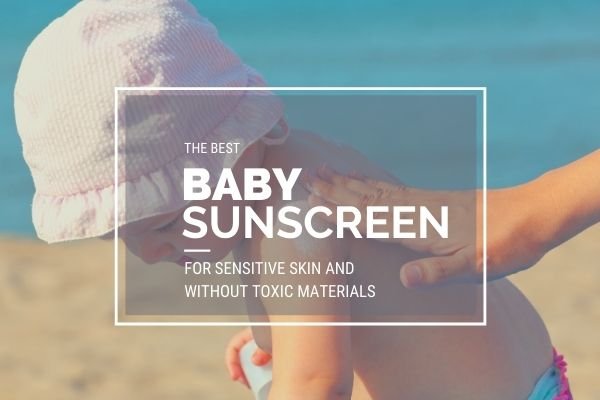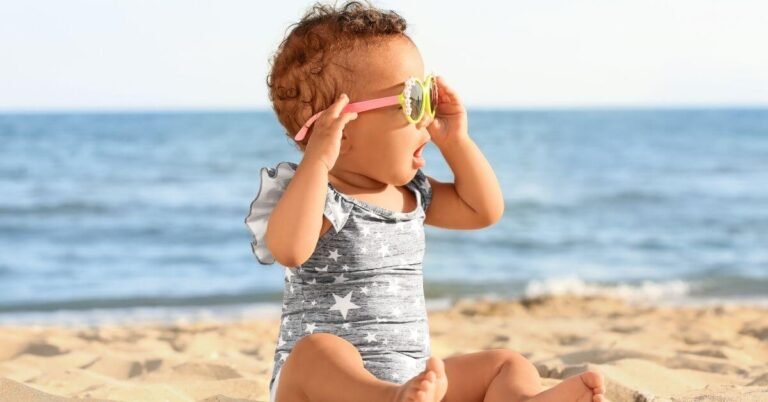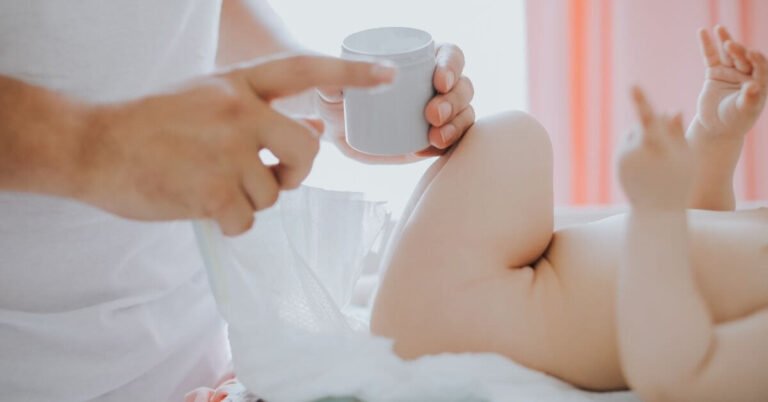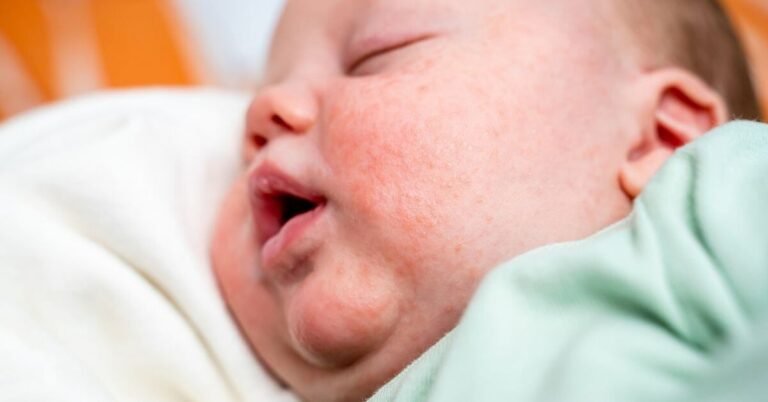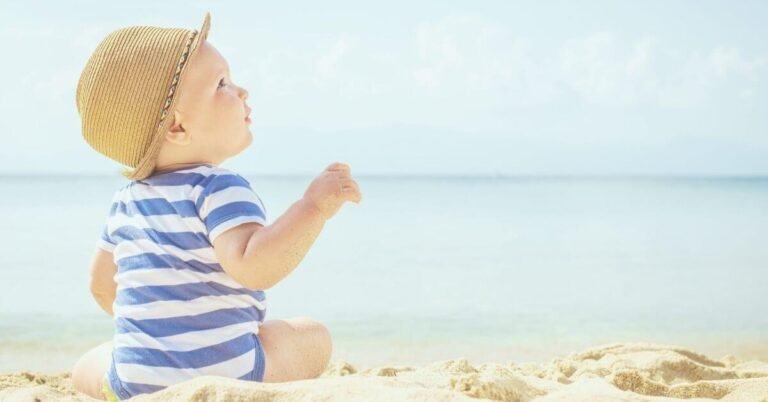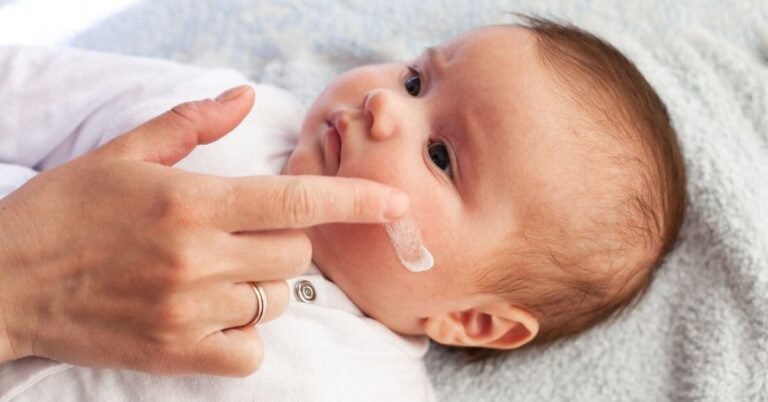The best baby sunscreen to use for baby’s sensitive skin without toxic chemicals
Sun protection is a serious matter, and finding the best baby sunscreen is hard.
The safest and best sunscreen for babies and toddlers would ideally be one that blocks all UVA and UVB radiation. It would also protect for many hours, be free of harmful ingredients, and not provoke skin reactions.
As we all know, this formula does not “yet” exist, so let us have a look at the best sunscreens for babies with the lowest health concerns.
For your convenience, the Environmental Working Group (EWG) provides a list of the safest sunscreens. We chose the top ten best baby sunscreens parents who also voted as the best from this list of sunscreens.
And be sure to read until the end of this page, where we give you some helpful buying tips, explain the difference between sunblock and sunscreen, and let you know which ingredients are harmful.
What sunscreen is safe for babies?
Sunscreen for infants younger than 6 months.
The American Academy of Pediatrics recommends parents to keep their infants under 6 months out of direct sunlight. At this age, the baby’s skin is very delicate and thin and has little melanin, our natural skin protection. Keep babies in a shady place under the trees or under an umbrella. This way, you can protect your baby from many skin problems caused by exposure to direct sunlight.
Sunscreen for infants older than 6 months.
The best baby sunscreen contains zinc oxide. Titanium dioxide will provide good protection against both UVA and UVB rays. Try to avoid using a baby sunscreen spray as they fill the air with tiny particles that may harm your baby when inhaling them. Furthermore, for
AFFILIATE DISCLAIMER: SOME OF THE LINKS IN THIS POST ARE AFFILIATE LINKS. IF YOU USE THESE LINKS TO BUY SOMETHING, WE MAY EARN A COMMISSION. SEE FULL DISCLAIMER.
Top 10 Best Sunscreens For Babies
After reading many baby sunscreen reviews, we made a list of the best all-natural baby sunscreens. We compared customer ratings with the results of the EWG’s sunscreen guide for the safest baby sunscreens.
Below are the top options for you to consider.
#1 Thinkbaby Safe Sunscreen SPF 50+
EWG’s number one rated baby sunscreen since 2010
#2 Adorable baby sunscreen stick
Works best for baby’s face, neck, and shoulders.
#3 Blue Lizard Australian Sunscreen for Baby, SPF 50
Best baby sunscreen for sensitive skin is recommended by most dermatologists.
#4 Badger Baby suncream SPF30
Hypoallergenic and organic sunscreen for babies.
#5 Neutrogena Pure & Free Baby Sunscreen, SPF 50
Best sunscreen for babies with eczema awarded with the National Eczema Association (NEA) seal of acceptance.
#6 Goddess Garden Organics Baby Natural Sunscreen Lotion, SPF 50
Very smooth organic sunscreen that is easy to apply.
#7 TruBaby Water & Play Sunscreen SPF30
Best water-resistant and non-toxic baby sunscreen for all skin types.
#8 Star Naturals Baby Sunscreen Stick
UVA/UVB protection without the use of chemical active ingredients or preservatives.
#9 Tom’s of Maine Baby Sunscreen Fragrance-Free
Hypoallergenic sunscreen for babies without artificial colors, fragrances, and preservatives.
#10 Bare Republic Mineral Sunscreen Lotion, Baby, SPF 50
Easy to rub in baby sunscreen with non-nano zinc oxide formula.
What Is The Difference Between Sunblock And Sunscreen?
Sunblock vs sunscreen
Sunblock has physical properties as it forms a protective barrier preventing UV rays from entering the skin. There is no need to reapply, and they work instantly. Equally important, sunblocks with zinc oxide and titanium dioxide are not absorbed by the skin. Titanium dioxide is a sunscreen agent often used for producing hypoallergenic sun products.
The only reason people rather not use these products is that they cause a less attractive whitening. Therefore, newer types of sunblock are nearly invisible. To make zinc oxide-based sunblocks invisible, they are made of nano-sized particles. However, nanoparticles should be used with caution because there is still not enough safety information regarding nanotechnology.
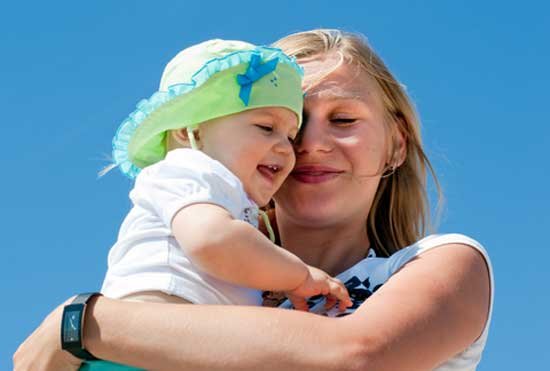
Sunscreen uses chemical ingredients to absorb the UVA and UVB rays. They let some radiation into the skin, depending on their Sun Protection Factor (SPF). Sunscreen does not work right away but needs to be applied at least 15 to 30 minutes before taking the baby out in the sun.
It would be best if you also reapplied sunscreen at least every two hours because, after that, the active ingredients start to break down.
What to look out for when buying sunscreen?
You need a broad-spectrum sunscreen that protects from UVA and UVB rays with an SPF of 15 to 50+. There is no evidence that sunscreens with SPF above 50 give meaningful extra protection
Baby sunscreen ingredients
Read the labels and avoid ingredients including PABA, Aminobenzoic acid, Dioxybenzone, Benzophenone, Oxybenzone, Homosalate, Octyl-methoxycinnamate (octinoxate), Octocrylene, Salicylates, and Parabens, which have shown in lab tests in rats to be irritants, carcinogens, and/or hormone disrupters.
Vitamin A (retinyl palmitate) – Nearly 30% of all sun care products use vitamin A because it has anti-aging properties. Try to avoid these products because recent studies show that vitamin A has photocarcinogenic properties, which means that it forms free radicals that damage our DNA when exposed to sunlight.
Avoid baby sunscreens with an insect repellant. As you may have to reapply the sunscreen every two hours, this may become a concern for the baby’s health if this also includes an insect repellant.
Does sunscreen expire?
Most sunscreens are designed to stay effective for a period of three years. Usually, you can find the sunscreen expiration date somewhere on the product. However, sunscreen expiring should not be a concern if you use the right amount of sunscreen to give adequate protection.
The recommended amount is 1 ounce or a shot glass full of sunscreen for each application. In other words, if your sunscreen lasts more than a year, you may not be using it enough.

